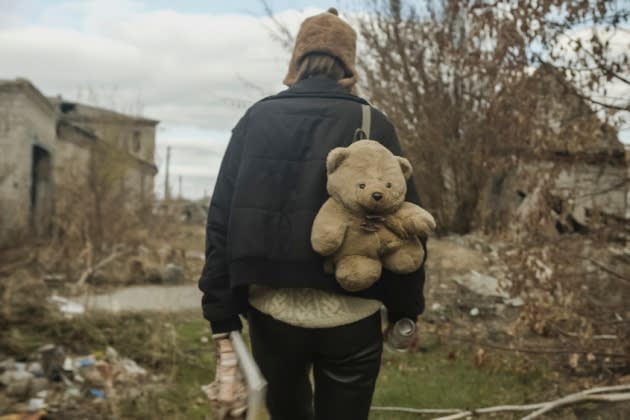How Ukrainian Docmaker Alisa Kovalenko Lost and Found Her Faith in Film After Fighting on the Frontline

Ukrainian director Alisa Kovalenko remembers exactly where she was last year when the Russian invasion started.
The award-winning documentary filmmaker (“Alisa in Warland”) was on her way to Eastern Ukraine, where she had spent the previous three years filming her latest feature, “We Will Not Fade Away,” which premieres Feb. 22 in the Generation 14plus section at the Berlin Film Festival.
More from Variety
Fighting in the Donbas region’s long-running conflict had intensified, and she had hoped to help evacuate the protagonists of the film, which follows five teenagers in the war-torn region struggling to live normal teenage lives.
Somewhere in the pre-dawn hours, as her train trundled through Eastern Ukraine, Kovalenko got a call from Kyiv. “The Russian rockets are already falling,” her mother said to her. By the time the director reached Donbas, the full-scale war had begun.
Kovalenko, whose previous documentary features have played at IDFA and Sheffield Doc/Fest, had a hopeful vision for “We Will Not Fade Away,” which was originally meant to follow her characters through a pioneering form of “adventure therapy” for youths living in war zones. As the film begins in 2019, her five protagonists are preparing for a trip to the Himalayas — an expedition, she said, that would show “how dreams can still change your life and how you can illuminate this dark world.”
After the Russian invasion, Kovalenko found herself making a very different documentary. Though she managed to persuade some of the film’s characters to flee the rapidly escalating hostilities, two haven’t been heard from since falling under Russian occupation. “Some dreams were completely broken,” she said.
For the director, completing “We Will Not Fade Away” suddenly felt like a futile exercise once the war began. “I felt completely powerless as a documentary filmmaker, what I could do with my camera. Am I useful or not?” she said. Instead, she joined a battalion of volunteers fighting on the war’s frontline “because I felt that was much more effective.”
It was a painful choice for the young mother. “My son was crying. He tried to grab my legs and not let me go,” said Kovalenko. But however difficult the decision, it didn’t feel like she had any other choice.
“I felt that we really have to fight now…so the Russians won’t destroy our country,” she said. “I didn’t want to go to France or some other country. I wanted to stay in Ukraine, and I want my son to grow up in Ukraine.”
However ambivalent she might have felt about her documentary work when the war began, Kovalenko captured many hours of footage during her four-month stint in the Ukrainian army and is prepping a feature-length documentary, “Frontline,” that focuses on brief moments of calm between the chaos of Russian attacks.
Insisting that documentary film “can also be a weapon,” the director drew a distinction between “the real frontline and the ‘cultural frontline’” while recognizing that Ukrainian filmmakers have their own part to play in the war against Russia. “At the beginning of the invasion, I lost my faith in films,” she said. “But I found it again.”
Best of Variety
Sign up for Variety’s Newsletter. For the latest news, follow us on Facebook, Twitter, and Instagram.

